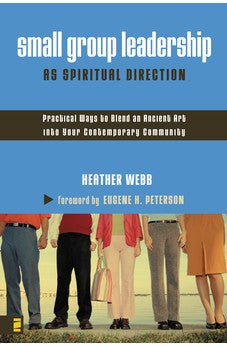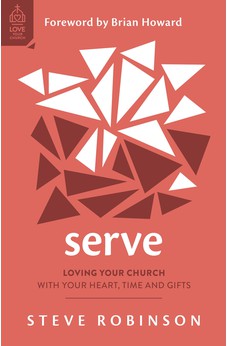Time and the Word: Figural Reading of the Christian Scriptures
3 Great Reasons to Buy from Us:
Review Matthew Levering -Mundelein Seminary "Ephraim Radner, whose significance and brilliance in contemporary Anglicanism becomes ever more apparent, here deepens and develops his proposal for the right reading of Scripture as rooted in a right reading of God-the Creator God who in Christ shows himself to be utterly sovereign over created time. . . . The range of Radner's reading is dazzling, as is his re-visioning of the doctrine of the divine ideas to insist that Christians must read and live history figurally, through the eternal Word manifested in Scripture as Love."Christopher A. Beeley -Yale Divinity School "Time and the Word reflects the hard-won realization that the church's very life depends on the figural interpretation of the Bible. Radner's substantive theological account of Scripture is both creatively traditional and truly new, and it serves as a welcome corrective to much Protestant hermeneutics and modern biblical criticism. An important response to the pressing question of what it means to read, interpret, preach, and pray with the Christian Scriptures faithfully."Robert W. Wall -Seattle Pacific University and Seminary "Who is more qualified than Ephraim Radner to reclaim the patristic practice of figural interpretation for today's church? Radner recognizes that the first task in doing so is to reset historical criticism's discourse, which typically treats figural reading as an artifact of antiquity, an inappropriate approach to Scripture for the modern-minded. . . . This is a highly original, intellectually rigorous, fearless book written by a scholar of the church for the academy."Paul R. Hinlicky -Roanoke College "In the figural reading of the Bible, the Figure that bridges the two Testaments configures readers into creatures created to love Him and enjoy Him forever. . . . In this welcome study Ephraim Radner delivers the Chief Figure speaking again from the Scriptures as the mighty, ever-seeking, ever-finding Lord of time."Reading Religion "A carefully argued and complex study that is a must-read for anyone working in scriptural hermeneutics." - Joseph L. Mangina in Modern Theology "Time and the Word is a serious book, demonstrating the extent to which questions of biblical interpretation take us deep into the Christian apprehension of reality. It is no contradiction to say that it is also an exhilarating book, even an enjoyable book. There are not many works of academic theology of which this can be said." This book by Ephraim Radner constitutes the first significant theological account of the foundations and methods of the figural reading of Scripture. Radner's reintroduces contemporary scholars to a traditional approach to biblical interpretation that dates back to Jewish practice from before the time of Jesus. Figural interpretation continued in prominence through the early church, the Middle Ages, and into the early modern period before it was forcefully rejected with the rise of historical criticism. Embracing "spiritual" and "allegorical" ways of understanding the Bible, figural reading once offered a broad approach to reading Scripture-an approach that Radner here engages through a foundational theological lens. Radner first uncovers the theological presuppositions of figural reading, historically and philosophically, focusing especially on the Christian understanding of time and the divine. He then moves from the theoretical to the concrete, looking at examples of how figural reading of the Bible gives rise to specific doctrinal claims about God and showing how it can still fruitfully inform Christian teaching and preaching today. The book concludes with four sample figural sermons from across the centuries. About the Author Ephraim Radner is an Episcopal priest and rector of Churchof the Ascension, Pueblo, Colorado.
Review Matthew Levering -Mundelein Seminary "Ephraim Radner, whose significance and brilliance in contemporary Anglicanism becomes ever more apparent, here deepens and develops his proposal for the right reading of Scripture as rooted in a right reading of God-the Creator God who in Christ shows himself to be utterly sovereign over created time. . . . The range of Radner's reading is dazzling, as is his re-visioning of the doctrine of the divine ideas to insist that Christians must read and live history figurally, through the eternal Word manifested in Scripture as Love."Christopher A. Beeley -Yale Divinity School "Time and the Word reflects the hard-won realization that the church's very life depends on the figural interpretation of the Bible. Radner's substantive theological account of Scripture is both creatively traditional and truly new, and it serves as a welcome corrective to much Protestant hermeneutics and modern biblical criticism. An important response to the pressing question of what it means to read, interpret, preach, and pray with the Christian Scriptures faithfully."Robert W. Wall -Seattle Pacific University and Seminary "Who is more qualified than Ephraim Radner to reclaim the patristic practice of figural interpretation for today's church? Radner recognizes that the first task in doing so is to reset historical criticism's discourse, which typically treats figural reading as an artifact of antiquity, an inappropriate approach to Scripture for the modern-minded. . . . This is a highly original, intellectually rigorous, fearless book written by a scholar of the church for the academy."Paul R. Hinlicky -Roanoke College "In the figural reading of the Bible, the Figure that bridges the two Testaments configures readers into creatures created to love Him and enjoy Him forever. . . . In this welcome study Ephraim Radner delivers the Chief Figure speaking again from the Scriptures as the mighty, ever-seeking, ever-finding Lord of time."Reading Religion "A carefully argued and complex study that is a must-read for anyone working in scriptural hermeneutics." - Joseph L. Mangina in Modern Theology "Time and the Word is a serious book, demonstrating the extent to which questions of biblical interpretation take us deep into the Christian apprehension of reality. It is no contradiction to say that it is also an exhilarating book, even an enjoyable book. There are not many works of academic theology of which this can be said." This book by Ephraim Radner constitutes the first significant theological account of the foundations and methods of the figural reading of Scripture. Radner's reintroduces contemporary scholars to a traditional approach to biblical interpretation that dates back to Jewish practice from before the time of Jesus. Figural interpretation continued in prominence through the early church, the Middle Ages, and into the early modern period before it was forcefully rejected with the rise of historical criticism. Embracing "spiritual" and "allegorical" ways of understanding the Bible, figural reading once offered a broad approach to reading Scripture-an approach that Radner here engages through a foundational theological lens. Radner first uncovers the theological presuppositions of figural reading, historically and philosophically, focusing especially on the Christian understanding of time and the divine. He then moves from the theoretical to the concrete, looking at examples of how figural reading of the Bible gives rise to specific doctrinal claims about God and showing how it can still fruitfully inform Christian teaching and preaching today. The book concludes with four sample figural sermons from across the centuries. About the Author Ephraim Radner is an Episcopal priest and rector of Churchof the Ascension, Pueblo, Colorado.































